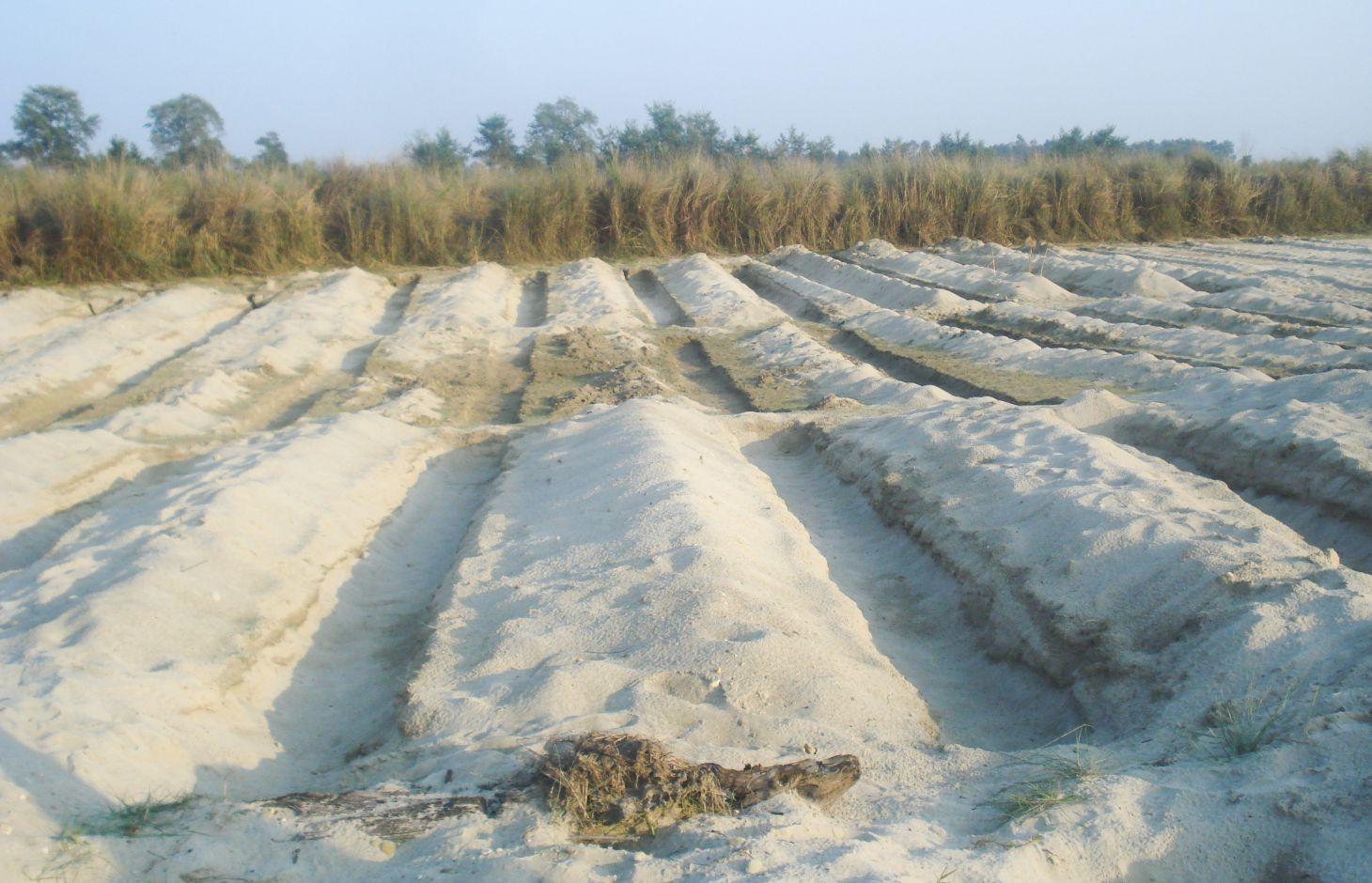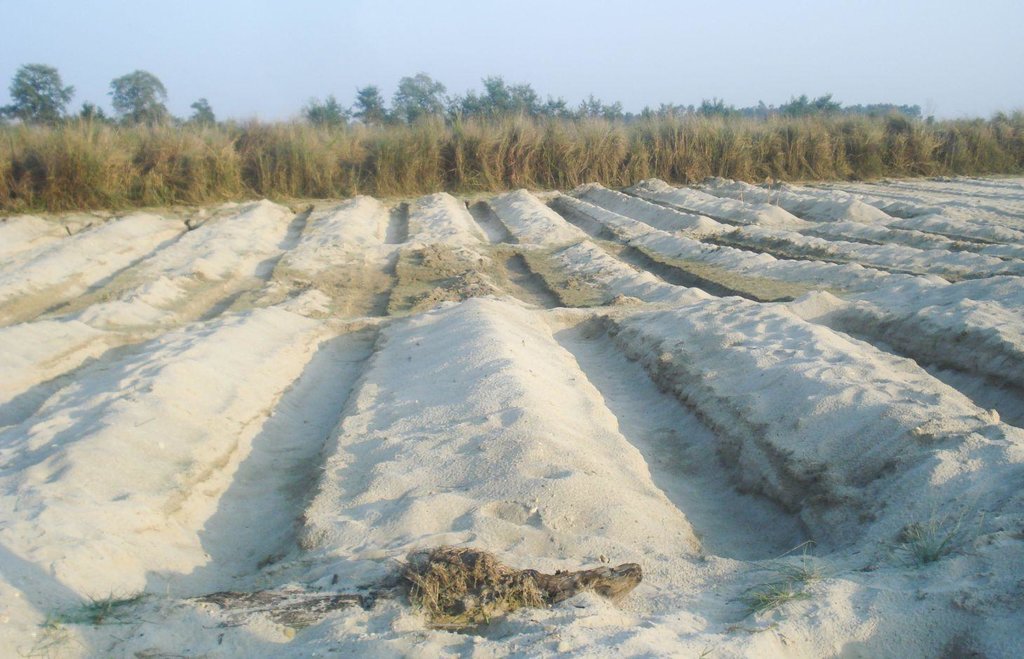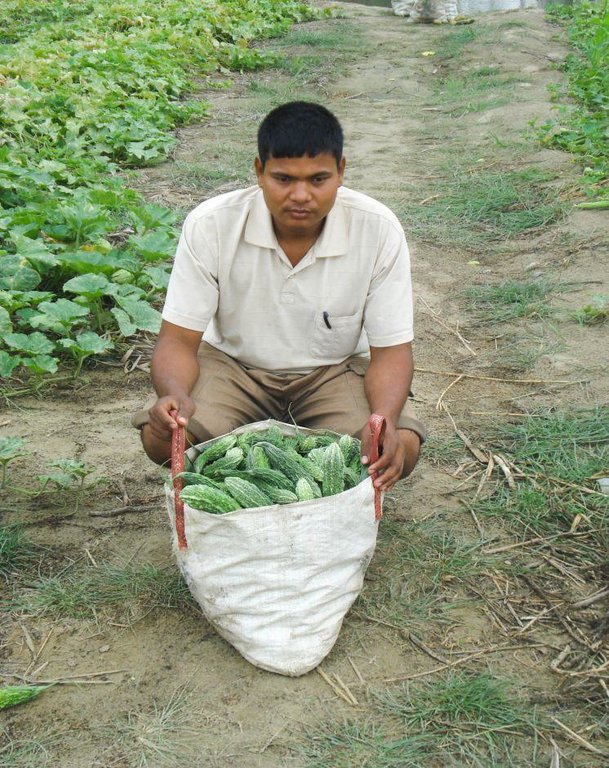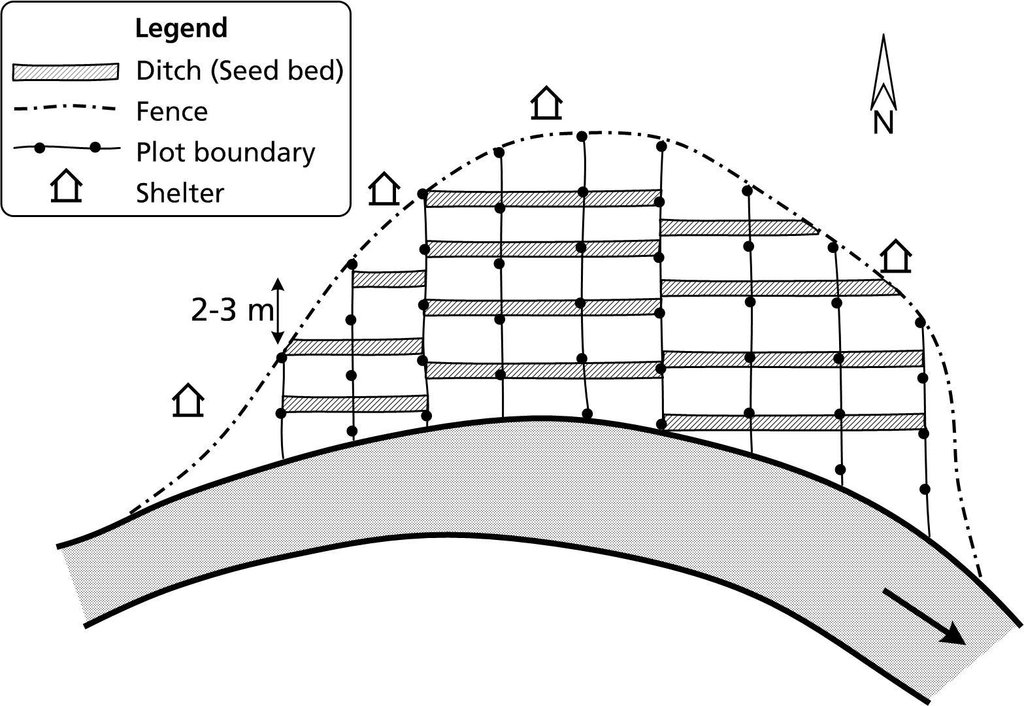Riverbed farming [النيبال]
- تاريخ الإنشاء:
- تحديث:
- جامع المعلومات: Shreedip Sigdel
- المحرر: –
- المُراجع: David Streiff
Bagar Kheti (Main Contributors: Elam Plus and Hari Gurung, Helvetas Nepal)
technologies_1691 - النيبال
عرض الأقسام
توسيع الكل طي الكل1. معلومات عامة
1.2 تفاصيل الاتصال بالأشخاص الرئيسيين لمصدر المعلومات والمؤسسات المشاركة في تقييم وتوثيق التقنية
متخصص في الإدارة المستدامة للأراضي:
Plus Elam
Helvetas
متخصص في الإدارة المستدامة للأراضي:
Gurung Hari
9741056444
hari.gurung@helvetas.org.np
Helvetas Nepal
GPO Box 688, Kathmandu/Nepal
النيبال
متخصص في الإدارة المستدامة للأراضي:
Merz Juerg
+977 9851044421
juerg.merz@helvetas.org.np
Helvetas Nepal
GPO Box 688, Kathmandu/Nepal
سويسرا
اسم المؤسسة (المؤسسات) التي سهلت توثيق/تقييم التقنية (إذا كان ذلك على صلة)
ICIMOD International Centre for Integrated Mountain Development (ICIMOD) - النيبالاسم المؤسسة (المؤسسات) التي سهلت توثيق/تقييم التقنية (إذا كان ذلك على صلة)
HELVETAS (Swiss Intercooperation)1.3 الشروط المتعلقة باستخدام البيانات الموثقة من خلال WOCAT
متى تم تجميع البيانات (ميدانيا)؟:
01/03/2013
يوافق جامع المعلومات والشخص (لاشخاص) الرئيسي لمصدر المعلومات على الشروط المتعلقة باستخدام البيانات الموثقة من خلال WOCAT:
نعم
1.5 الإشارة إلى الاستبيان (الاستبيانات) حول مناهج الإدارة المستدامة للأراضي
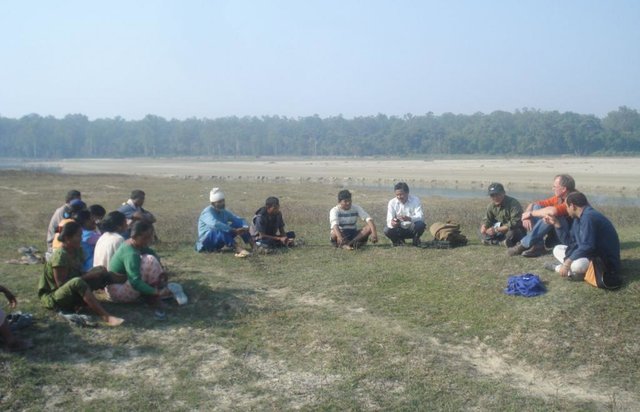
Land distribution and allocation for riverbed farming [النيبال]
Riverbed farming provides landless and land-poor households with the possibility to earn an income from on-farm activities close to home
- جامع المعلومات: Shreedip Sigdel
2. وصف تقنيةالإدارة المستدامي للأراضي
2.1 وصف مختصر للتقنية
تعريف التقنية:
Riverbed farming can be used to increase household income and to improve the food security of landless and land-poor households in the Terai area of Nepal.
2.2 وصف تفصيلي للتقنية
الوصف:
It is estimated that about 8,000 hectares of riverbed land would be suitable for agricultural cultivation in the Kailali and Kanchanpur Districts in the Western Terai areas of Nepal. After the river water recedes in the post-monsoon season, vegetables are planted in ditches dug into the seasonal sand banks; the crops are harvested before the onset of the next monsoon. In 2006, Elam Plus of HELVETAS Swiss Inter-cooperation Nepal, assessed local practices of riverbed farming and piloted an improved approach with 670 farmers, mostly from the indigenous Tharu community. During the first year they cultivated 43 hectares. Since the initial results indicated that riverbed farming could increase the target population’s income significantly, the programme was expanded from the initial two districts (Kailali and Kanchanpur) to two new districts (Banke, and Bardiya). The number of households was increased to 2000 in 2008 and 3165 in 2012 after the initiative won a Global Development Market Place award from the World Bank.
Establishment / maintenance activities and inputs: Requirements for riverbed farming:
• On average, the water table should not be lower than 1 m; when the water table is lower than this, too much labour is required.
• Plots are allocated perpendicular to the river flow in order to give each farmer access to a variety of land types (and moisture levels) suitable for different crops.
• Ditches are up to 1 m deep and 1 m wide. The length depends on how much land is available.
• A row-to-row spacing of 2–3 m (between the ditches) and plant-to-plant spacing of 0.5–1 m is required depending on the crop.
• The ditches are dug in an east-west orientation to maximize the amount of sunshine they receive and to minimise the collection of sand carried by the prevailing winds.
• Riverbed farmers can build shelters close to their plots so that they can be close at hand to fend off thieves and wild animals.
2.3 صور التقنية
2.5 البلد/المنطقة/المواقع التي تم تنفيذ التقنية فيها والتي يغطيها هذا التقييم
البلد:
النيبال
مزيد من التفاصيل حول الموقع:
Kanchanpur, Kailali Districts
2.7 إدخال التقنية
حدد كيف تم إدخال التقنية:
- من خلال المشاريع/ التدخلات الخارجية
3. تصنيف تقنية الإدارة المستدامي للأراضي
3.1 الغرض الرئيسي ( الأغراض الرئيسية) للتقنية
- خلق أثر اقتصادي مفيد
- خلق أثر اجتماعي مفيد
3.2 نوع (أنواع) استخدام الأراضي الحالية حيث يتم تطبيق التقنية

الأراضي الزراعية
- زراعة سنوية
التعليقات:
Major land use problems (compiler’s opinion): Rivers in the Terai region change their course frequently and when they do, the adjacent lands are flooded. The riverbeds are flooded annually, while the riverbanks are only flooded during extreme events. The annually flooded riverbeds are seasonally dry (from September to May) and are a generally unused land resource. Landless and land- poor farmers can use this land to cultivate seasonal vegetables that are adapted to the environmental conditions prevalent on riverbeds.
3.3 مزيد من المعلومات حول استخدام الأراضي
عدد مواسم الزراعة في السنة:
- 1
حدد:
Longest growing period from month to month: November to May
3.4 مجموعةالإدارة المستدامة للأراضي التي تنتمي إليها هذه التقنية
- تحسين الغطاء الأرضي/النباتي
- use different type of land for cultivation
3.5 انتشار التقنية
حدد انتشار التقنية:
- منتشرة بالتساوي على مساحة
التعليقات:
Total area covered by the SLM Technology is 4 km2.
3.6 التدابير التقنية في مجال إلادارة المستدامة للأراضي
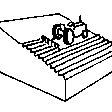
التدابير الزراعية
- A2: المادة العضوية/خصوبة التربة
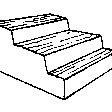
التدابير البنيوية
- S3: الخنادق المتدرجة ،والقنوات، والممرات المائية
3.7 الأنواع الرئيسية من تدهور الأراضي التي تناولتها التقنية

تآكل التربة بالمياه
- (Wr):انجراف ضفة النهر
التعليقات:
Main causes of degradation: floods
3.8 منع أو حد أو عكس تدهور الأراضي
تحديد هدف التقنية فيما يتعلق بتدهور الأراضي:
- الحد من تدهور الأراضي
4. المواصفات الفنية، وأنشطة التنفيذ، والمدخلات، والتكاليف
4.1 الرسم الفني للتقنية
4.2 المواصفات الفنية/شروحات الرسم الفني
Plots for riverbed farming are allocated perpendicular to the river flow and the ditches are dug in an east-west orientation.
Technical knowledge required for land users: moderate
Main technical functions: increase / maintain water stored in soil, Support Income Generation
Secondary technical functions: improvement of ground cover, increase in organic matter, Stabilizes the soil
4.3 معلومات عامة بخصوص حساب المدخلات والتكاليف
حدد كيفية احتساب التكاليف والمدخلات:
- حسب مساحة تنفيذ التقنية
الإشارة إلى حجم ووحدة المساحة:
ha
حدد العملة المستخدمة لحساب التكاليف:
- دولار أمريكي
4.4 أنشطة التأسيس
| النشاط | نوع التدبير | التوقيت | |
|---|---|---|---|
| 1. | Dig ditches in an east-west direction about 2 to 3 m apart. The ditches can be up to 1 m deep and 1 m wide; the length will depend on the shape of the land. | بنيوية أو هيكلية | |
| 2. | Apply fertilizer: farmyard manure/compost about 12 tonnes; urea about 100 kg; di-ammonium phosphate (DAP) about 120 kg; and potash about 30 kg per ha. | بنيوية أو هيكلية | |
| 3. | Plant seeds/seedlings using the appropriate row-to-row (RXR) and plant-to-plant (PXP) distance for at least one crop. A row-to-row distance of 3 m is required for bottle gourd, pumpkin, and water melon and 2 m for bitter gourd and cucumber; a plant-to-plant distance of 0.5 m is needed for cucumber and bitter gourd and 1 m for water melon, bottle gourd, and pumpkin. | بنيوية أو هيكلية |
4.5 التكاليف والمدخلات اللازمة للتأسيس
| تحديد المدخلات | الوحدة | الكمية | التكاليف لكل وحدة | إجمالي التكاليف لكل مدخل | % من التكاليف التي يتحملها مستخدمو الأراضي | |
|---|---|---|---|---|---|---|
| العمالة | Dig ditches and applying fertilizer and manure | ha | 1,0 | 232,0 | 232,0 | 100,0 |
| معدات | Sprayer, watering cans,spade | ha | 1,0 | 42,0 | 42,0 | |
| الأسمدة والمبيدات الحيوية | Seeds, chemical fertilizer | ha | 1,0 | 267,0 | 267,0 | |
| مواد البناء | Plastic bags,mulching material | ha | 1,0 | 21,0 | 21,0 | |
| إجمالي تكاليف إنشاء التقنية | 562,0 | |||||
4.6 الصيانة/الأنشطة المتكررة
| النشاط | نوع التدبير | التوقيت/الوتيرة | |
|---|---|---|---|
| 1. | Water new plots every 2 to 3 days; as the seedlings mature, water weekly or as needed depending on the weather and the soilconditions. | بنيوية أو هيكلية | |
| 2. | Replace seedlings that have died and replant seeds in places where they have not germinated | بنيوية أو هيكلية | |
| 3. | Top dress with nitrogen, phosphorous, potassium | بنيوية أو هيكلية | |
| 4. | Mulch with straw and grass | بنيوية أو هيكلية | |
| 5. | Weed and protect plants as needed | بنيوية أو هيكلية | |
| 6. | Protect the riverbed areas throughout the growing season as they are prone to attacks by thieves and wild animals, mainly jackals and monkeys. However, note that the reported losses to date have been very minimal. | بنيوية أو هيكلية |
4.7 التكاليف والمدخلات اللازمة للصيانة/للأنشطة المتكررة (سنويًا)
| تحديد المدخلات | الوحدة | الكمية | التكاليف لكل وحدة | إجمالي التكاليف لكل مدخل | % من التكاليف التي يتحملها مستخدمو الأراضي | |
|---|---|---|---|---|---|---|
| العمالة | Maintaining plots | ha | 1,0 | 42,0 | 42,0 | 100,0 |
| معدات | Sprayer, watering cans,spade | ha | 1,0 | 28,0 | 28,0 | 25,0 |
| الأسمدة والمبيدات الحيوية | Seeds, chemical fertilizer | ha | 1,0 | 84,0 | 84,0 | 25,0 |
| مواد البناء | Plastic bags, mulching material | ha | 1,0 | 11,0 | 11,0 | 50,0 |
| إجمالي تكاليف صيانة التقنية | 165,0 | |||||
4.8 أهم العوامل المؤثرة على التكاليف
قدم وصفا لأهم العوامل التي تؤثر على التكاليف:
All costs and amounts are rough estimates by the technicians and authors.
5. البيئة الطبيعية والبشرية
5.1 المناخ
هطول الأمطار السنوي
- < 250 مم
- 251- 500 ملم
- 501 - 750ملم
- 1,000-751 ملم
- 1,500-1,100 ملم
- 2,000-1,500 ملم
- 3,000-2,001 ملم
- 4,000-3,100 ملم
- > 4000 ملم
المنطقة المناخية الزراعية
- رطبة
Thermal climate class: subtropics
5.2 طوبوغرافيا
متوسط الانحدارات:
- مسطح (0-2%)
- بسيط (3-5%)
- معتدل (6-10%)
- متدحرج (11-15%)
- تلال (16-30%)
- شديدة الانحدار(31-60%)
- فائقة الانحدار (>60%)
التضاريس:
- هضاب/سهول
- أثلام مرتفعة
- المنحدرات الجبلية
- منحدرات التلال
- منحدرات في السفوح
- قاع الوادي
المنطقة الارتفاعية:
- 100-0 متر فوق سطح البحر
- 500-101 متر فوق سطح البحر
- 1,000-501 متر فوق سطح البحر
- 1,500-1,001 متر فوق سطح البحر
- 2,000-1,501 متر فوق سطح البحر
- 2,500-2,100 متر فوق سطح البحر
- 3,000-2,501 متر فوق سطح البحر
- 4,000-3,001 متر فوق سطح البحر
- > 4000 متر فوق سطح البحر
5.3 التربة
متوسط عمق التربة:
- ضحل جدًا (0-20 سم)
- ضحلة (21-50 سم)
- متوسطة العمق (51-80 سم)
- عميقة (81-120 سم)
- عميقة جدًا (> 120 سم)
قوام التربة (التربة السطحية):
- خشن / خفيف (رملي)
المواد العضوية في التربة السطحية:
- منخفضة (<1%)
إذا كان متاحًا، قم بإرفاق وصف كامل للتربة أو تحديد المعلومات المتوفرة، على سبيل المثال نوع التربة، الرقم الهيدروجيني/ درجة حموضة التربة، قدرة التبادل الكاتيوني، النيتروجين، الملوحة وما إلى ذلك.
Soil fertility is medium
Soil drainage / infiltration is good
Soil water storage capacity is low
5.4 توافر المياه ونوعيتها
منسوب المياه الجوفية:
50-5 م
توافر المياه السطحية:
ضعيف/ غير متوافر
نوعية المياه (غير المعالجة):
مياه شرب جيدة
تعليقات ومواصفات أخرى بشأن نوعية المياه وكميتها:
Ground water table: 30-50 m
5.5 التنوع البيولوجي
تنوع الأنواع:
- منخفض
5.6 خصائص مستخدمي الأراضي الذين يطبقون التقنية
التوجه السوقي لنظام الإنتاج:
- مختلط (كفاف/ تجاري)
الدخل من خارج المزرعة:
- >50% من إجمالي الدخل
المستوى النسبي للثروة:
- ضعيف
أفراداً أو مجموعات:
- فرد/أسرة معيشية
اذكر الخصائص الأخرى ذات الصلة لمستخدمي الأراضي:
Population density: 200-500 persons/km2
5.7 متوسط مساحة الأرض المملوكة أو المستأجرة من قبل مستخدمي الأراضي الذين يطبقون التقنية
- < 0.5 هكتارا
- 0.5 - 1 هكتار
- 1 -2 هكتار
- 2 - 5 هكتار
- 5 - 15 هكتار
- 15 - 50 هكتار
- 50 - 100هكتار
- 500-100 هكتار
- 1,000-500 هكتار
- 10,000-1,000 هكتار
- > 10,000 هكتار
5.8 ملكية الأراضي، وحقوق استخدام الأراضي، وحقوق استخدام المياه
- landless
5.9 الوصول إلى الخدمات والبنية التحتية
الصحة:
- ضعيف
- معتدل
- جيد
التعليم:
- ضعيف
- معتدل
- جيد
المساعدة التقنية:
- ضعيف
- معتدل
- جيد
العمل (على سبيل المثال خارج المزرعة):
- ضعيف
- معتدل
- جيد
الأسواق:
- ضعيف
- معتدل
- جيد
الطاقة:
- ضعيف
- معتدل
- جيد
الطرق والنقل:
- ضعيف
- معتدل
- جيد
مياه الشرب وخدمات الصرف الصحي:
- ضعيف
- معتدل
- جيد
الخدمات المالية:
- ضعيف
- معتدل
- جيد
6. الآثار والتصريحات الختامية
6.1 الآثار التي أظهرتها التقنية في الموقع
الآثار الاجتماعية والاقتصادية
الدخل والتكاليف
دخل المزرعة
تنوع مصادر الدخل
التعليقات/ حدد:
Provides vegetables for riverbed farming households
آثار اجتماعية واقتصادية أخرى
dependent on external agricultural inputs
الآثار الاجتماعية والثقافية
الأمن الغذائي / الاكتفاء الذاتي
التعليقات/ حدد:
Riverbed crops can be exchanged for food grain; on average,this can provide an additional four month
التخفيف من حدة الصراع
التعليقات/ حدد:
Conflicts can arise when the land is being allocated and border conflict can arise between different groups
وضع الفئات المحرومة اجتماعيا واقتصاديا
التعليقات/ حدد:
Additional income can be used to cover school fees and health services
livelihood and human well-being
التعليقات/ حدد:
Provides alternative means of income as well as food security for landless and land-poor households
social status of local resource persons
need for income usually met by migration and by off-farm daily wage labour
الآثار الايكولوجية
دورة المياه / الجريان السطحي
جودة المياه
التعليقات/ حدد:
Excessive use of fertilizers may affect water quality and the use of pesticides in the case of massive pest invasions may affect the water quality as well
التربة
غطاء التربة
فقدان التربة
التعليقات/ حدد:
Minimize soil loss due to wind erosion
الحد من مخاطر المناخ والكوارث
آثار الفيضانات
التعليقات/ حدد:
Crops can be lost during floods, cold spells and hailstormes
6.2 الآثار التي أظهرتها التقنية خارج الموقع
Local availability of fresh vegetables
6.3 تعرض التقنية وحساسيتها لتغير المناخ التدريجي والظواهر المتطرفة/الكوارث المرتبطة بالمناخ (كما يراها مستخدمو الأراضي)
تغير مناخ تدريجي
تغير مناخ تدريجي
| الموسم | نوع التغير المناخي/ المتطرف | كيف تتعامل التقنية مع ذلك؟ | |
|---|---|---|---|
| درجة الحرارة السنوية | زيادة | جيدا |
الظواهر المتطرفة / الكوارث المرتبطة بالمناخ
الكوارث الهيدرولوجية
| كيف تتعامل التقنية مع ذلك؟ | |
|---|---|
| فيضان عام (نهر) | ليس جيدا |
6.4 تحليل التكلفة والعائد
كيف يمكن مقارنة العوائد نسبة لتكاليف الإنشاء (من وجهة نظر مستخدمي الأراضي)؟
عوائد قصيرة الأجل:
إيجابي
عوائد طويلة الأجل:
إيجابي
كيف تتم مقارنة العوائدمع كلفة الصيانة/التكاليف المتكررة (من وجهة نظر مستخدمي الأراضي)؟
عوائد قصيرة الأجل:
إيجابي
عوائد طويلة الأجل:
إيجابي
6.5 اعتماد التقنية
التعليقات:
There is a moderate trend towards spontaneous adoption of the Technology
Comments on adoption trend: The majority of riverbed farmers among the first few groups to learn the technique continued riverbed farming after support for the project ended. In the third year, 55 of the original 61 groups were still farming on the riverbed even though they did not receive any agricultural inputs with the exception of support from the local resource persons. The local resource persons have organized themselves into an independent organisation that now provides technical support through the Micro Enterprise Development Fund and through individual channels. Now that Nepali farmers have started to farm the riverbeds in the Kailali and Kanchanpur Districts, the number of Indian farmers who previously farmed these riverbeds has drastically diminished.
6.7 نقاط القوة / المزايا / الفرص التي توفرها التقنية
| نقاط القوة/ المزايا/ الفرص من وجهة نظر جامع المعلومات أو غيره من الاشخاص الرئيسيين لمصدر المعلومات |
|---|
|
Riverbed farming provides a new source of income for landless and land-poor households How can they be sustained / enhanced? Continue to provide technical support through local resource persons. These persons can be supported through district-based instruments such as the Micro Enterprise Development Fund. Local governing bodies such as the district development committees, municipalities, and village development committees, can support riverbed farming with their own funds; can support farmers with the land leasing process, can help to identify primary stakeholders, and can also help by promoting policies that are favourable towards riverbed farming. |
|
Riverbed farming has a very high cost-benefit ratio and a very low investment requirement. How can they be sustained / enhanced? Continue to promote this technology among primary stakeholders. |
|
All services including the supply of quality seeds, tools, and materials are now processed through the local agrovets and agricultural extension is available through local resource persons. These are locally available and of high quality. How can they be sustained / enhanced? Agrovets, local resource persons, and their associations may need further capacity building through different channels such as the Micro Enterprise Development Fund, and/or the District Agricultural Development Office |
6.8 نقاط ضعف / مساوىء / مخاطر التقنية وسبل التغلب عليها
| نقاط الضعف/ المساوىء/ المخاطر من وجهة نظر جامع المعلومات أو غيره من الاشخاص الرئيسيين لمصدر المعلومات | كيف يمكن التغلب عليها؟ |
|---|---|
| Competition from riverbed products originating in India and a glut during the season | Riverbed farmer groups need to improve their understanding of the value chain and their access to markets. |
| Mineral fertilizer and biopesticides are now used to ensure a good harvest | Promote sustainable soil management practices including the use of farmyard manure, urine collection, and bio-pesticides |
| Land ownership of riverbed land is often contested | Long term leasehold agreements need to be negotiated with land owners |
7. المراجع والروابط
7.2 المراجع للمنشورات المتاحة
العنوان، المؤلف، السنة، النظام القياسي الدولي لترقيم الكتب ISBN:
Riverbed farming manual and local resource person training modules. Kathmandu, Nepal, HELVETAS Swiss Intercooperation Nepal
الروابط والوحدات المواضيعية
توسيع الكل طي الكلالروابط

Land distribution and allocation for riverbed farming [النيبال]
Riverbed farming provides landless and land-poor households with the possibility to earn an income from on-farm activities close to home
- جامع المعلومات: Shreedip Sigdel
الوحدات المواضيعية
لا يوجد وحدات مواضيعية


